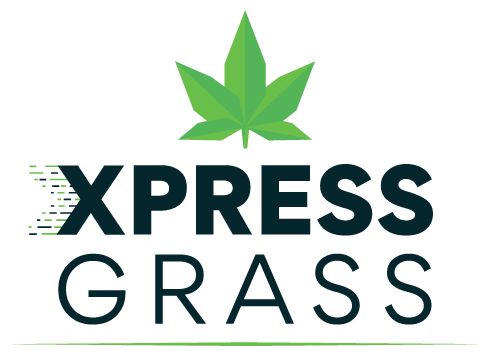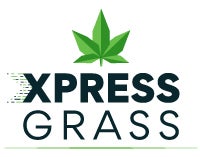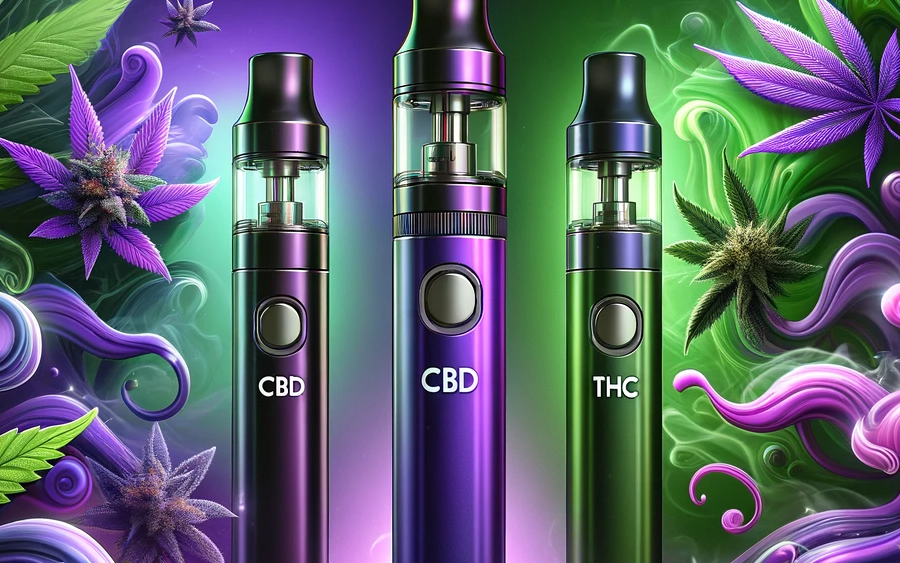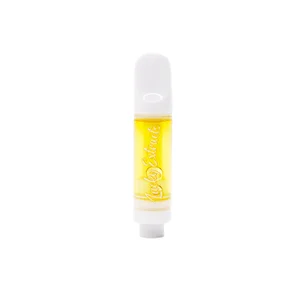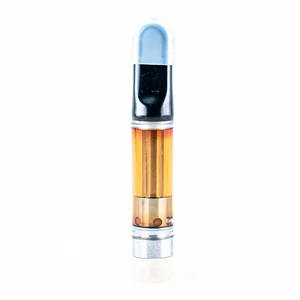Vape pens have become a discreet and easy way to take in cannabinoids such as THC and CBD, which are derived from the cannabis sativa plant, in the constantly changing cannabis consumption. Understanding the distinct cannabinoid profiles of CBD and THC is essential for appreciating their unique benefits and applications.
Medical marijuana, often used for symptom management in conditions like chronic pain, multiple sclerosis, and PTSD, highlights the legal landscape and prescription-based accessibility in many states.
As the popularity of these compounds continues to grow, understanding the distinctions between CBD and THC vape pens has become increasingly important. While both offer potential benefits, their effects and applications can vary significantly.
This comprehensive guide aims to illuminate the contrasts and advantages of CBD and THC pens, empowering you to decide which option best suits your needs and preferences.
Understanding Cannabinoids
Before delving into the specifics of CBD and THC vape pens, it’s crucial to have a basic understanding of cannabinoids. These are the active compounds found in the cannabis sativa plant, with CBD (cannabidiol) and THC (tetrahydrocannabinol) being the two most well-known and widely studied varieties. Cannabinoids, including CBD and THC, are key components of medical marijuana used for various therapeutic purposes.
Cannabinoids are the active compounds found in the cannabis plant. They interact with the body’s endocannabinoid system, which regulates various physiological processes. Understanding the unique properties of each Cannabinoid is key to appreciating the contrasts between CBD and THC vape pens.
What are CBD and THC?
CBD (Cannabidiol) and THC (Tetrahydrocannabinol) are two of the most well-known compounds found in the cannabis plant. Both CBD and THC are cannabinoids, a class of compounds that interact with the body’s endocannabinoid system, which plays a crucial role in regulating various physiological processes. While both CBD and THC are derived from the cannabis plant, they have distinct characteristics and effects.
CBD is a non-psychoactive compound, meaning it does not produce the “high” effect commonly associated with cannabis use. This makes it an attractive option for those seeking the potential therapeutic benefits of cannabis without the mind-altering effects. On the other hand, THC is the primary psychoactive compound in cannabis, responsible for the “high” sensation. This difference in psychoactivity is a key factor in how each compound is used and perceived.
CBD vs THC: The Differences
CBD vs THC may be derived from different types of cannabis plants with varying chemical compositions, but their effects and legal statuses differ significantly. THC is the psychoactive compound responsible for the “high” associated with cannabis consumption, while CBD is non-psychoactive and does not produce any intoxicating effects.
The distinction between CBD and THC is a crucial one. While THC is the compound responsible for the psychoactive effects or “high” associated with cannabis use, CBD is non-psychoactive and does not produce any intoxicating effects, making it an attractive option for those seeking potential therapeutic benefits without the mind-altering effects. These differences influence their roles in medical marijuana, particularly for symptom management in conditions like chronic pain, multiple sclerosis, and PTSD.
Chemical Structure and Effects
CBD and THC share a similar chemical structure, each containing 21 carbon atoms, 30 hydrogen atoms, and two oxygen atoms. However, the arrangement of these atoms differs, leading to distinct effects on the body. This structural difference is what sets CBD and THC apart in terms of their interaction with the body’s endocannabinoid system.
THC binds directly to the body’s cannabinoid receptors, particularly the CB1 receptors in the brain, producing the psychoactive effects or “high” associated with cannabis use. In contrast, CBD does not bind to these receptors similarly. Instead, it indirectly influences the endocannabinoid system, so it does not produce psychoactive effects. This unique interaction allows CBD to offer potential therapeutic benefits without the intoxicating effects of THC.
Benefits of CBD Vape Oil Pens
CBD vape pens have gained popularity for their potential therapeutic benefits, including:
- Pain relief: CBD has been shown to possess analgesic properties, making it a potential alternative for managing various types of pain.
- CBD vape pens are also a popular choice within the realm of medicine for managing symptoms like pain and anxiety.
- Anxiety and stress reduction: Many users report feeling a sense of calm and relaxation after using CBD, potentially aiding in the management of anxiety and stress.
- Anti-inflammatory properties: CBD may help reduce inflammation, which could benefit those with conditions like arthritis or inflammatory bowel diseases.
For those seeking CBD pain relief or exploring the potential cannabis health benefits, CBD vape pens offer a convenient and discreet option. Many users report feeling a sense of calm and relaxation after using CBD, potentially aiding in the management of anxiety and stress, as well as reducing inflammation.
Benefits of THC Vape Liquid Pens
While THC is primarily associated with its psychoactive compound effects, it also offers potential therapeutic benefits, including THC vape liquid, which is specifically formulated for use in vaporizing devices. THC vape pens are used in medical marijuana for conditions like chronic pain and appetite stimulation.
- Pain management: THC has been shown to have analgesic properties, making it a potential option for managing chronic pain.
- Appetite stimulation: THC is known for its ability to stimulate appetite, which can be beneficial for those undergoing cancer treatment or suffering from conditions that cause appetite loss.
- Nausea and vomiting relief: THC may help alleviate nausea and vomiting associated with specific medical treatments or conditions.
- While CBD has been explored for its potential in managing anxiety, the effects of CBD vs THC for anxiety can vary. Some individuals may find relief with CBD, while others may experience increased anxiety or paranoia when using THC, particularly at higher doses.
Legality and Availability of CBD Products
The legality and availability of CBD and THC can vary significantly depending on where you are. For instance, CBD is legal at the federal level in Canada. In the US, some states have legalized CBD for medical use, while others have approved it for recreational use.
Medical marijuana is legally accessible in many provinces through prescriptions for managing specific conditions such as chronic pain, multiple sclerosis, and PTSD.
THC, however, is still classified as a Schedule I controlled substance by the Drug Enforcement Administration (DEA) and remains illegal at the federal level, unlike Canada. All provinces have legalized THC for either medical or recreational purposes. This also applies to the volume of THC in the product; 2g disposable vapes are pretty standard nowadays, where the 1g cartridge was previously the largest. However, get this: you can also purchase a dual-chamber 6g disposable vape pen that contains two strains.
It’s crucial to stay updated on the ever-changing laws surrounding CBD and THC in your area. If you’re considering using these compounds, consulting with a healthcare professional or a qualified cannabis clinician can help ensure that you’re compliant with local regulations. This step is particularly important as the legal landscape continues to evolve, impacting these products’ availability and permissible use.
Medical Marijuana and CBD
Medical cannabis refers to the use of cannabis plants to treat various medical conditions. Both CBD and THC have been shown to have potential therapeutic benefits, making them valuable components of medical marijuana. These benefits include reducing pain, inflammation, and anxiety, among others.
CBD, in particular, has garnered significant attention for its potential to treat conditions such as epilepsy, multiple sclerosis, and arthritis. Its non-psychoactive nature makes it a preferred option for many patients seeking relief without the high. State medical cannabis laws vary, but many states have approved the use of medical cannabis for specific conditions, recognizing the therapeutic potential of both CBD and THC. Understanding these laws is crucial for anyone considering medical cannabis as a treatment option.
Side Effects and Interactions of CBD-THC
While both CBD and THC are generally considered safe, they can have side effects. CBD is known for its good safety profile, with side effects that are typically mild and temporary. Common side effects of CBD include fatigue, diarrhea, changes in appetite, and drowsiness.
It is also worth noting that while medical marijuana can offer therapeutic benefits, it is important to be aware of potential side effects and interactions.
THC, the psychoactive component of cannabis, can have more pronounced side effects, especially when consumed in large doses. These can include anxiety, panic attacks, increased heart rate, dry mouth, and red eyes. It’s important to be aware of these potential reactions, particularly if you’re new to using THC products.
Moreover, both CBD and THC can interact with other medications, including prescription and over-the-counter drugs. If you’re considering incorporating CBD or THC into your routine, it’s essential to consult with a healthcare professional. This ensures you’re not taking any medications that could potentially interact with these cannabinoids, safeguarding your health and well-being.
Drug Testing
CBD and THC can both be detected on a drug test. However, the likelihood of a positive result depends on various factors, such as the type of test, the amount of CBD or THC consumed, and the individual’s metabolism. Standard drug tests typically screen for THC, the psychoactive component of cannabis, rather than CBD.
CBD is generally not detectable on a standard drug test. However, high levels of CBD may trigger a false positive result, mainly if the CBD product contains trace amounts of THC. THC, on the other hand, is more likely to result in a positive test result, particularly if consumed in large amounts or frequently. It’s essential to note that drug testing laws and regulations vary by state and employer. Therefore, understanding your area’s specific laws and policies is crucial to avoid any potential issues related to drug testing.
By integrating these new sections, the article now provides a more comprehensive understanding of CBD and THC, their chemical structures, effects, and their roles in medical marijuana, as well as considerations for drug testing. This enhances the reader’s knowledge and helps them make informed decisions about using CBD and THC vape pens.
Choosing the Right Option
When it comes to selecting between CBD or THC vape pens, it’s crucial to consider your individual needs, preferences, and any potential legal implications. If you’re seeking the potential therapeutic benefits without the psychoactive effects, CBD vape pens may be the better choice. However, if you’re comfortable with the potential mind-altering effects of THC and live in a region where it is legal, THC vape pens like the Burn 3g THC vape pen could offer relief for conditions like chronic pain or appetite loss.
Medical marijuana patients might choose between CBD and THC vape pens based on their specific medical needs and conditions, such as chronic pain, multiple sclerosis, or PTSD.
Responsible Use and Sourcing
Regardless of your choice, it’s essential to approach the use of CBD or THC vape pens with responsibility and caution. Always source your products from reputable suppliers and follow dosage guidelines to ensure a safe and effective experience. When using medical marijuana, sourcing from reputable suppliers is crucial to ensure safety and efficacy.
Additionally, be mindful of potential interactions with other medications and consult a healthcare professional if you have any underlying medical conditions.
Vaping and Smoking
Vaping and smoking are two popular methods of consuming cannabis, but they have distinct differences in terms of their effects, risks, and benefits.
Vaping CBD and THC
Vaping involves inhaling a vapor created by heating a specific liquid substance, vape oil or e-liquid, which contains varying concentrations of cannabinoids and is specifically formulated for use in vaporizing devices.
CBD and THC vape liquids are specifically formulated for safe inhalation and are not designed for smoking. Vape pens, such as THC vape pens, are portable vaporizers that allow for precise control over THC intake and offer a faster onset of effects compared to traditional methods like smoking the cannabis flower.
Smoking Cannabis Plants
Smoking cannabis, on the other hand, involves burning the cannabis plant and inhaling the smoke. This method can be harsh on the lungs and may pose health risks, especially for people with pre-existing respiratory conditions. Smoking cannabis can also lead to a stronger psychoactive effect due to the rapid absorption of THC into the bloodstream.
Key Differences
The key differences between vaping and smoking cannabis lie in their methods of consumption, effects, and risks. Vaping is generally considered a safer and more discreet option while smoking cannabis can be harsh on the lungs and may pose health risks. However, both methods can provide therapeutic benefits, and the choice between vaping and smoking ultimately depends on personal preference and individual needs.
Daily Use and Safety
Using CBD and THC daily can be safe, but it’s important to be mindful of potential risks. Smoking cannabis, for example, can pose risks to lung health, and even vaping CBD or THC can have its own set of concerns, particularly if the vape oil is not formulated correctly.
If you’re thinking about using CBD or THC daily, consulting with a healthcare professional is crucial. Medical marijuana patients should consult healthcare professionals to ensure safe and effective daily use. They can help you use these compounds safely and responsibly, guiding you on the appropriate dosages and helping you start with a low dose to avoid adverse effects.
Another important consideration is the potential for CBD and THC to show up on drug tests. Regular use of these compounds can lead to a positive result, which could have significant implications if you’re subject to drug testing. Always consult with a healthcare professional to ensure that your use of CBD or THC won’t inadvertently trigger a positive drug test.
In summary, while CBD and THC can offer various benefits, it’s essential to use them responsibly and be aware of the potential risks, especially with daily use.
In Conclusion…
In the ever-evolving world of cannabis products, understanding the contrasts and benefits of CBD vs THC vapes is crucial for making informed decisions about your well-being. While CBD offers potential therapeutic benefits without the psychoactive effects, THC may provide relief for conditions like chronic pain and appetite loss.
Medical marijuana plays a significant role in the therapeutic use of CBD and THC vape pens, particularly for symptom management in chronic pain, multiple sclerosis, and PTSD. Ultimately, the choice between these two options depends on your needs, preferences, and the legal landscape in your region. Embrace the potential of these remarkable compounds, but always prioritize responsible use, moderation, and seeking guidance from trusted sources.
FAQs
Can CBD vape pens get you high?
No, CBD vape pens do not produce any intoxicating or psychoactive effects, as CBD is a non-psychoactive compound.
Can THC vape pens have medicinal benefits?
Yes, THC vape pens have been explored for their potential medicinal benefits, including pain management, appetite stimulation, and nausea relief.
However, it’s crucial to consult with a healthcare professional and familiarize yourself with the legal status in your area.
Can CBD and THC vape pens be used together?
Some users may choose to combine CBD and THC vape pens, as there is evidence suggesting that these compounds can work together to produce an “entourage effect.” However, starting with low doses and monitoring your body’s reaction is important, as the effects can vary significantly between individuals.
What are the therapeutic applications and legal considerations of using medical marijuana with CBD and THC vape pens?
Medical marijuana, which includes both CBD and THC, has been shown to help manage symptoms of chronic pain, multiple sclerosis, and PTSD, offering significant therapeutic benefits. Studies highlight significant improvements experienced by users.
However, it is important to understand the legal landscape, as medical marijuana is prescription-based, and its accessibility varies by state. Always consult with a healthcare professional before starting any new treatment.
Are vape pens safe for long-term use?
The long-term safety of vape pens is still being researched, and there are concerns about the potential risks of inhaling various vaporized compounds. If you plan to use vape pens regularly, it’s essential to use high-quality products from reputable sources and consult with a healthcare professional.
Are there any age restrictions for using CBD or THC vape pens?
Age restrictions for using CBD or THC vape pens vary depending on your location and the specific laws and regulations surrounding cannabis products. There are minimum age requirements in many regions for purchasing and consuming these products, often 18 or 21 years old.
